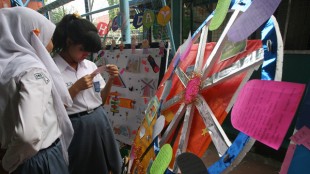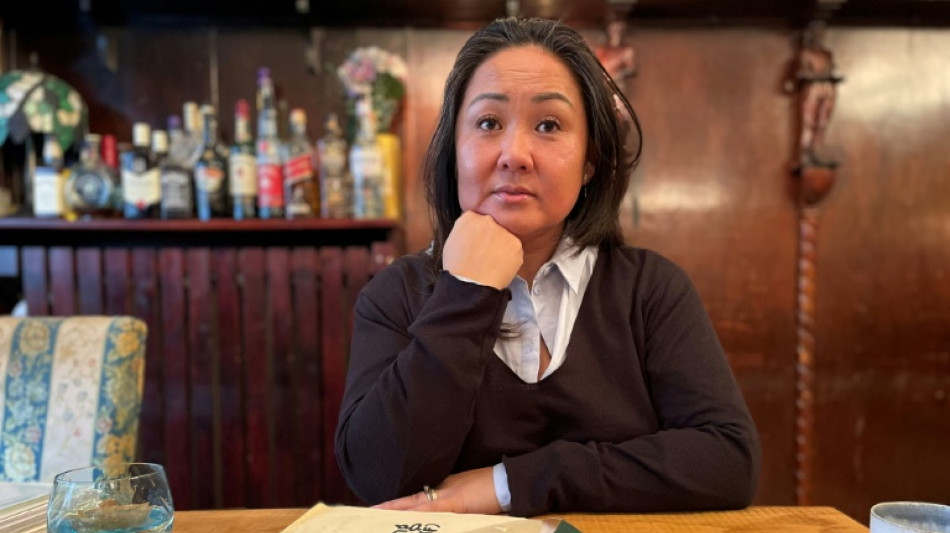
-
 Moscow chokes Telegram as it pushes state-backed rival app
Moscow chokes Telegram as it pushes state-backed rival app
-
ArcelorMittal confirms long-stalled French steel plant revamp
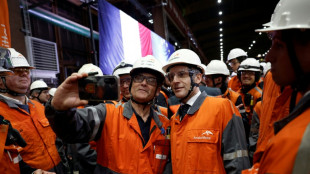
-
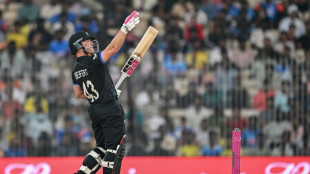 New Zealand set new T20 World Cup record partnership to crush UAE
New Zealand set new T20 World Cup record partnership to crush UAE
-
Norway's Ruud wins Olympic freeski slopestyle gold after error-strewn event
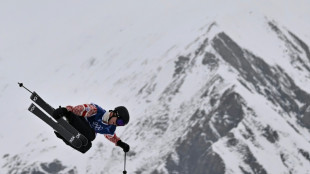
-
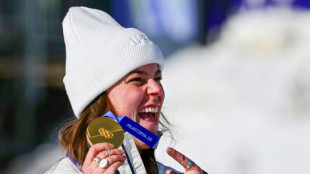 USA's Johnson gets new gold medal after Olympic downhill award broke
USA's Johnson gets new gold medal after Olympic downhill award broke
-
Von Allmen aims for third gold in Olympic super-G

-
 Liverpool need 'perfection' to reach Champions League, admits Slot
Liverpool need 'perfection' to reach Champions League, admits Slot
-
Spotify says active users up 11 percent in fourth quarter to 751 mn

-
 AstraZeneca profit jumps as cancer drug sales grow
AstraZeneca profit jumps as cancer drug sales grow
-
Waseem's 66 enables UAE to post 173-6 against New Zealand

-
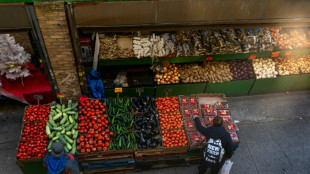 Stocks mostly rise tracking tech, earnings
Stocks mostly rise tracking tech, earnings
-
Say cheese! 'Wallace & Gromit' expo puts kids into motion
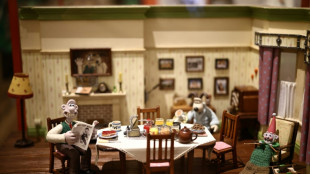
-
 BP profits slide awaiting new CEO
BP profits slide awaiting new CEO
-
USA's Johnson sets up Shiffrin for tilt at Olympic combined gold
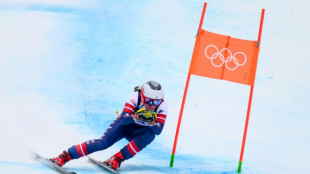
-
 Trump tariffs hurt French wine and spirits exports
Trump tariffs hurt French wine and spirits exports
-
Bangladesh police deploy to guard 'risky' polling centres
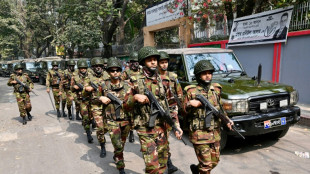
-
 OpenAI starts testing ads in ChatGPT
OpenAI starts testing ads in ChatGPT
-
Three-year heatwave bleached half the planet's coral reefs: study
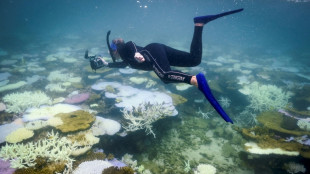
-
 England's Buttler calls McCullum 'as sharp a coach as I ever worked with'
England's Buttler calls McCullum 'as sharp a coach as I ever worked with'
-
Israel PM to meet Trump with Iran missiles high on agenda

-
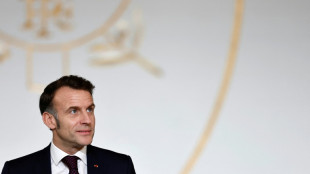 Macron says wants 'European approach' in dialogue with Putin
Macron says wants 'European approach' in dialogue with Putin
-
Georgia waiting 'patiently' for US reset after Vance snub
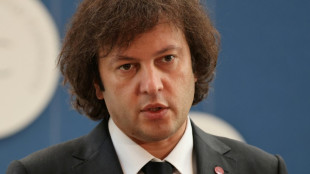
-
 US singer leaves talent agency after CEO named in Epstein files
US singer leaves talent agency after CEO named in Epstein files
-
Skipper Marsh tells Australia to 'get the job done' at T20 World Cup

-
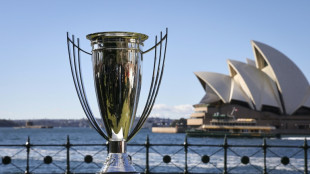 South Korea avert boycott of Women's Asian Cup weeks before kickoff
South Korea avert boycott of Women's Asian Cup weeks before kickoff
-
Barcelona's unfinished basilica hits new heights despite delays

-
 Back to black: Philips posts first annual profit since 2021
Back to black: Philips posts first annual profit since 2021
-
South Korea police raid spy agency over drone flight into North
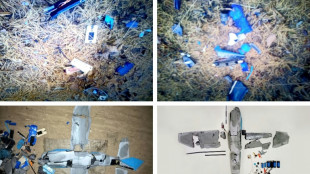
-
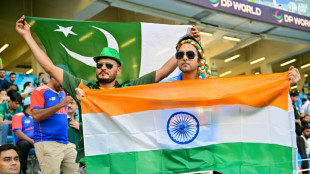 'Good sense' hailed as blockbuster Pakistan-India match to go ahead
'Good sense' hailed as blockbuster Pakistan-India match to go ahead
-
Man arrested in Thailand for smuggling rhino horn inside meat
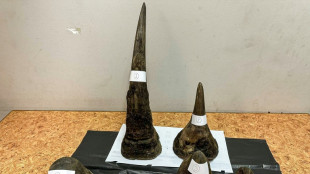
-
 Man City eye Premier League title twist as pressure mounts on Frank and Howe
Man City eye Premier League title twist as pressure mounts on Frank and Howe
-
South Korea police raid spy agency over drone flights into North
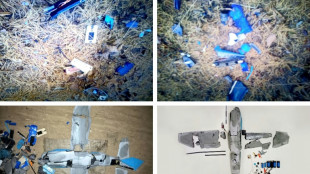
-
 Solar, wind capacity growth slowed last year, analysis shows
Solar, wind capacity growth slowed last year, analysis shows
-
'Family and intimacy under pressure' at Berlin film festival
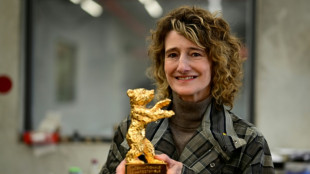
-
 Basket-brawl as five ejected in Pistons-Hornets clash
Basket-brawl as five ejected in Pistons-Hornets clash
-
January was fifth hottest on record despite cold snap: EU monitor

-
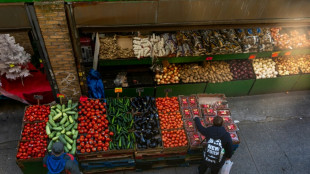 Asian markets extend gains as Tokyo enjoys another record day
Asian markets extend gains as Tokyo enjoys another record day
-
Warming climate threatens Greenland's ancestral way of life
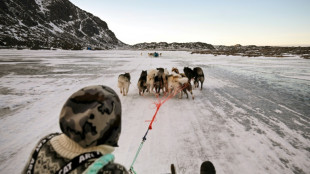
-
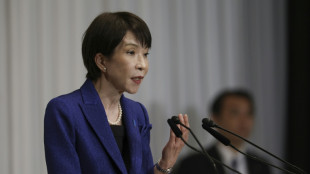 Japan election results confirm super-majority for Takaichi's party
Japan election results confirm super-majority for Takaichi's party
-
Unions rip American Airlines CEO on performance

-
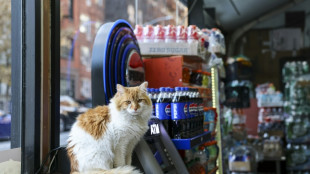 New York seeks rights for beloved but illegal 'bodega cats'
New York seeks rights for beloved but illegal 'bodega cats'
-
Blades of fury: Japan protests over 'rough' Olympic podium

-
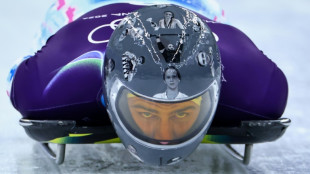 Zelensky defends Ukrainian athlete's helmet at Games after IOC ban
Zelensky defends Ukrainian athlete's helmet at Games after IOC ban
-
Jury told that Meta, Google 'engineered addiction' at landmark US trial

-
 Despite Trump, Bad Bunny reflects importance of Latinos in US politics
Despite Trump, Bad Bunny reflects importance of Latinos in US politics
-
Intrusion Inc. Expands Business Development Efforts With Strategic Leadership Additions

-
 Osa Commerce Launches AI-Powered Retail Compliance at Manifest 2026 Targeting $5 Billion Chargeback Problem
Osa Commerce Launches AI-Powered Retail Compliance at Manifest 2026 Targeting $5 Billion Chargeback Problem
-
Datavault AI Recaps High-Impact Super Bowl LX Weekend with NFL Alumni, Live ADIO(R) Activations, DVHOLO(TM) and Tokenization

-
 Aspire Biopharma Regains Compliance with Nasdaq Minimum Bid Price Requirement
Aspire Biopharma Regains Compliance with Nasdaq Minimum Bid Price Requirement
-
Charlie's Holdings (OTCQB:CHUC) Selected for FDA Premarket Tobacco Product Applications Meeting


Victims of Denmark's adoption scandal demand answers
"I don't even know when I was born," said May-Britt Koed, a Copenhagen restaurant owner and one of the quarter of a million South Korean babies sent abroad for adoption since the 1950s.
Her adoption files contain two different birth dates months apart, which Koed suspects means she may have been exchanged for another baby that did not survive.
Experts say even the chubby baby picture sent to her Danish adoptive parents may not have been of her.
All the 47-year-old knows for sure is that "I arrived in Denmark on May 17, 1977".
Koed's case is far from isolated. The growing scandal over falsified records has prompted South Korea's Truth and Reconciliation Commission to look at hundreds of cases from the country's "baby farm" adoption industry during the decades of dictatorship that ended in the late 1980s.
Koed said her Danish Korean Rights Group has seen hundreds of files containing falsified documents, with some babies arriving in Denmark six centimetres (two inches) shorter than they were in their South Korea files.
A January report for Denmark's social affairs ministry found that some adoption agencies, operating under Danish state control, knew their South Korean partners were changing children's identities in the 1970s and 1980s.
More worrying still, "it's been documented that letters were being sent from (birth) parents who didn't know where their children were", said Marya Akhtar of the Danish Institute for Human Rights.
- 'Why didn't anything happen?' -
"And allegedly it looks like they were in the possession of authorities in Denmark," she added.
"Why didn't anything happen? We call for a thorough examination," Akhtar told AFP.
Danish adoption agencies also reportedly paid some 54 million kroner ($7.9 million) to Korean orphanages and other bodies over the years to facilitate the adoptions, according to media investigations.
Denmark suspended all international adoptions in January amid serious concerns over babies also brought from other countries including India and South Africa.
"It's like opening Pandora's Box," Koed told AFP.
"We are at a point where we can see that the Danish government has been involved," said Koed, whose group has called for an independent Danish commission into the trade.
"Everybody deserves to have that truth, especially the adoptees that are trying to piece together their own history," she said.
"I haven't searched for a biological family, I'm not sure I'm going to. I am doing this to discover the truth of what happened to all of us and to find out who is responsible," she added.
Time is of the essence for those who want to trace their biological families, with some already learning that their parents are dead, she added.
Copenhagen's freeze on international adoptions came after the last agency operating there closed down amid revelations of financial pressure and fraudulently acquired consent -- not only in South Korea but also in India, Madagascar and South Africa.
Brothers and sisters were separated and sometimes adopted to different countries.
Danish social affairs minister Pernille Rosenkrantz-Theil said there was "too high a risk of human trafficking or child theft".
Last year she promised an inquiry into the history of international adoption procedures.
Legal expert Klaus Josephsen, a lecturer at the University of Aarhus, said there "hasn't been enough control" of the system in Denmark.
"We have a private organisation, which has handled and taken care of those adoptions. They found children then created the papers and sent them to the Danish authorities," he added.
"We will not see those organisations anymore, because the government doesn't trust them. So I think we will get a new system, where the state will be active," Josephsen said.
J.Williams--AMWN

